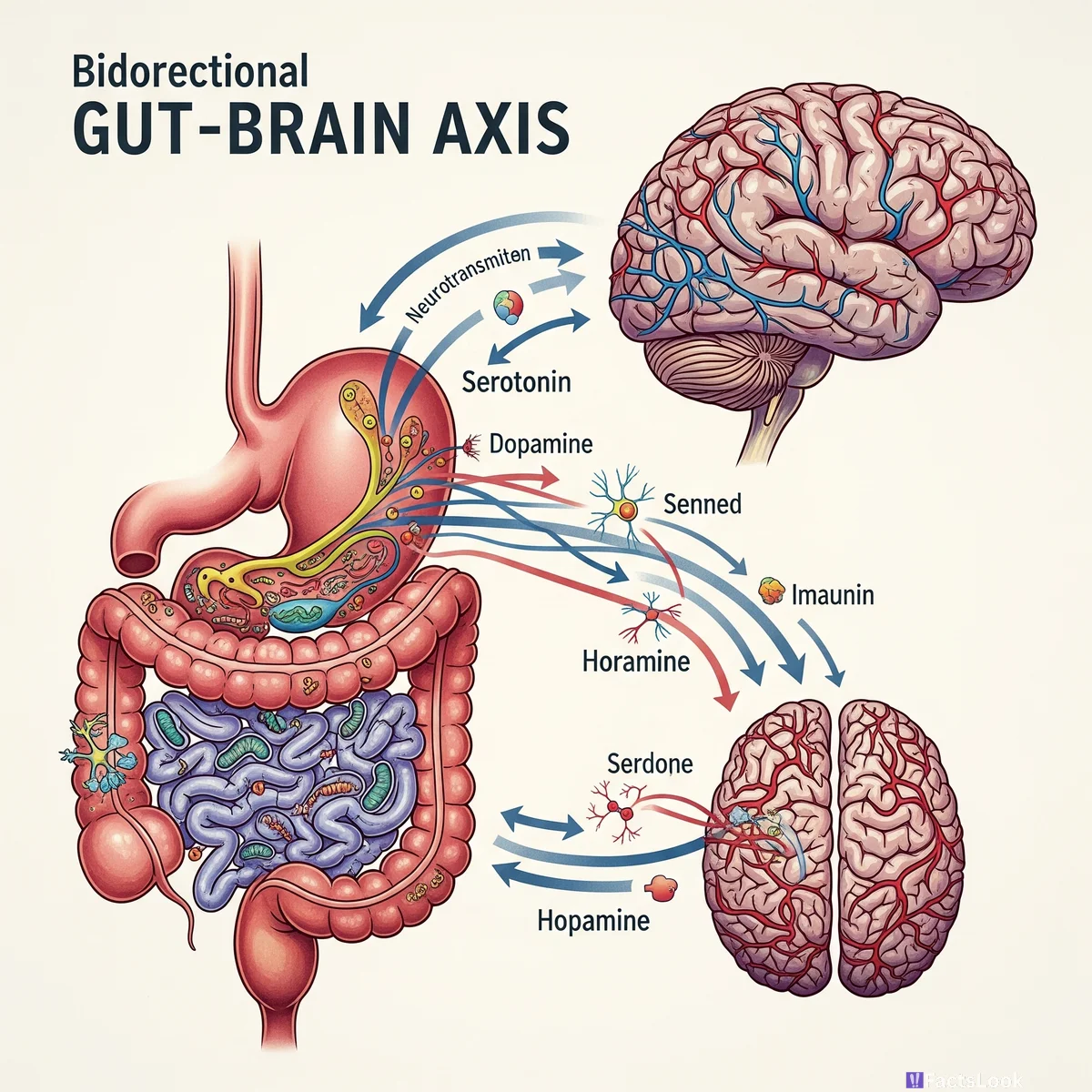33 Shocking Obesity Facts & Weight Loss Insights You Need To Know (2025)
The Silent Pandemic: An Introduction to the Obesity Crisis

We often hear about 'epidemics' related to infectious diseases, but obesity is a global health crisis of a different kind – a slow-burning pandemic impacting nearly every nation. This isn't just about weight; it's a complex interplay of genetics, environment, and behavior. Prepare to be surprised by these 33 shocking facts about obesity and the science of sustainable weight loss.
Obesity Isn't Just a Modern Problem

While rates have skyrocketed recently, evidence of individuals struggling with excess weight dates back millennia! Archaeological findings show skeletal remains from ancient civilizations – like those found in Roman Britain – exhibiting signs of obesity, suggesting dietary and lifestyle factors have played a role for centuries. [Source: British Medical Journal - https://www.bmj.com/content/328/7446/972]
Gut Microbiome's Unexpected Role
Your gut bacteria profoundly impact your weight. Studies show obese individuals often have less diverse gut microbiomes compared to lean individuals. Certain bacterial strains can extract more calories from food, leading to increased energy absorption and, potentially, weight gain. [Source: Nature - https://www.nature.com/articles/nature12221]
Sleep Deprivation & Weight Gain

Consistently getting less than 7-8 hours of sleep can significantly increase your risk of obesity. Sleep deprivation disrupts hormones that regulate appetite (ghrelin and leptin), leading to increased hunger and cravings for high-calorie foods. It also decreases your metabolic rate.
The 'Obesity Paradox' in Heart Failure
Surprisingly, in individuals with heart failure, a slightly higher BMI (within the obese range) can sometimes be associated with better survival rates – a phenomenon known as the ‘obesity paradox.’ This is thought to be due to having 'reserves' to draw upon during illness, but isn't a recommendation to gain weight.
Stress & Cortisol's Impact on Weight

Chronic stress elevates cortisol levels. High cortisol can lead to increased abdominal fat storage, as well as cravings for sugary and fatty foods – a coping mechanism that contributes to weight gain. Managing stress is crucial for effective weight management.
The Set Point Theory: Your Body's Weight 'Thermostat'
The set point theory suggests your body has a predetermined weight range it tries to maintain. When you try to lose weight, your metabolism may slow down, and hunger may increase, making it harder to keep the weight off. This doesn’t mean weight loss is impossible, but overcoming the set point requires sustained effort.
NEAT: Non-Exercise Activity Thermogenesis

NEAT refers to the energy expended for everything we do that isn’t sleeping, eating, or deliberate exercise. This includes fidgeting, walking around, and even maintaining posture. NEAT can vary dramatically between individuals and significantly impact calorie expenditure.
Obesogens: Environmental Chemicals That Promote Fat Storage
Certain chemicals found in plastics, pesticides, and personal care products – known as obesogens – can disrupt the endocrine system and promote fat storage. Limiting exposure to these chemicals is an emerging area of obesity prevention. [Source: Environmental Health Perspectives - https://ehp.niehs.nih.gov/doi/10.1289/ehp.0901780]
The Role of Sugar-Sweetened Beverages

Sugar-sweetened beverages (SSBs) like soda and juice are strongly linked to obesity. These drinks provide empty calories, don’t promote fullness, and can lead to insulin resistance. Reducing SSB consumption is one of the most impactful steps you can take for weight loss.
Genetic Predisposition Isn't Destiny
Genetics can account for 30-70% of your susceptibility to obesity. However, genes don't *determine* your fate. Lifestyle factors – diet, exercise, sleep – play a crucial role in whether or not those genetic predispositions are expressed.
The Influence of Social Networks
Your social network can influence your weight. Studies show people are more likely to become obese if their friends or family members are obese. This is due to shared norms, behaviors, and social pressure.
The Impact of Food Deserts

Food deserts – areas with limited access to affordable, nutritious food – disproportionately affect low-income communities and contribute to higher rates of obesity. Lack of access to fresh produce and healthy options makes it harder to maintain a healthy diet.
Ultra-Processed Foods: The Hidden Culprit
Ultra-processed foods (UPFs) – foods high in sugar, fat, and salt, and containing many artificial ingredients – are linked to increased obesity rates. These foods are designed to be hyper-palatable and often bypass the body’s satiety signals.
The Role of Portion Sizes

Over the past few decades, portion sizes have dramatically increased. This ‘portion distortion’ contributes to overeating. Being mindful of portion sizes is a simple but effective weight management strategy.
Yo-Yo Dieting & Metabolic Damage
Repeated cycles of weight loss and gain (yo-yo dieting) can damage your metabolism, making it harder to lose weight in the future. It can also increase your risk of chronic diseases like heart disease. Focus on sustainable lifestyle changes instead of quick fixes.
The Brown Fat Factor

Brown fat is a type of fat tissue that burns calories to generate heat. Adults have relatively small amounts of brown fat, but research suggests it can be 'activated' through cold exposure or exercise, potentially boosting metabolism.
Menopause and Weight Gain
Hormonal changes during menopause often lead to weight gain, particularly around the abdomen. Decreasing estrogen levels can affect metabolism and fat distribution. Lifestyle interventions are crucial during this time.
The Impact of Advertising on Food Choices

Food advertising, especially for unhealthy foods, significantly influences our food choices. Exposure to these ads can increase cravings and lead to overconsumption.
Binge Eating Disorder (BED) & Obesity
Binge Eating Disorder is the most common eating disorder in the United States and is strongly associated with obesity. BED involves consuming large amounts of food in a short period of time, accompanied by feelings of loss of control. [Source: National Eating Disorders Association - https://www.nationaleatingdisorders.org/]
The Gut-Brain Connection

Your gut and brain are in constant communication. The gut microbiome can influence brain function, including appetite control and mood. A healthy gut can contribute to better mental and physical health.
Weight Loss Plateaus are Normal
Experiencing a weight loss plateau is a common and frustrating experience. It’s often due to a decrease in metabolic rate as you lose weight. Adjusting your calorie intake or exercise routine can help overcome a plateau.
The Importance of Strength Training

Strength training builds muscle mass, which increases your metabolism and helps you burn more calories even at rest. It’s an essential component of a comprehensive weight loss plan.
Mindful Eating for Sustainable Results
Mindful eating involves paying attention to your hunger and fullness cues, savoring your food, and eating without distractions. It can help you develop a healthier relationship with food and reduce overeating.
Hydration's Role in Weight Management

Drinking enough water is crucial for weight loss. Water can help you feel fuller, boost your metabolism, and improve digestion. Sometimes thirst is mistaken for hunger.
The Power of Fiber
Fiber-rich foods promote fullness, regulate blood sugar levels, and support a healthy gut microbiome. Increasing your fiber intake can be a simple and effective weight management strategy.
Standing Desks & Active Workspaces

Spending hours sitting at a desk can contribute to weight gain. Standing desks and active workspaces encourage movement and increase calorie expenditure throughout the day.
The Benefits of Intermittent Fasting (IF)
Intermittent fasting (IF) involves cycling between periods of eating and voluntary fasting. Some studies suggest IF can promote weight loss and improve metabolic health, but it’s not suitable for everyone. [Source: Harvard School of Public Health - https://www.hsph.harvard.edu/nutritionsource/intermittent-fasting/]
Sleep Apnea & Obesity Connection

Obesity is a major risk factor for obstructive sleep apnea (OSA), a condition where breathing repeatedly stops and starts during sleep. OSA can disrupt metabolism and contribute to weight gain, creating a vicious cycle.
The Long-Term Impact of Childhood Obesity
Childhood obesity increases the risk of developing chronic diseases like heart disease, type 2 diabetes, and certain cancers later in life. Early intervention and prevention are crucial.
Comments
Loading comments...